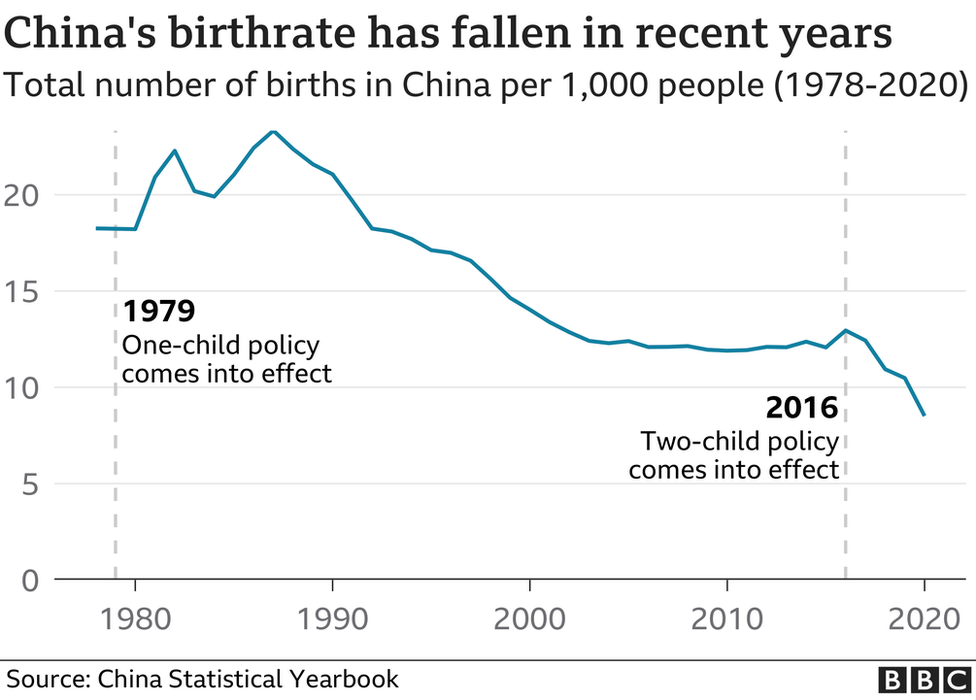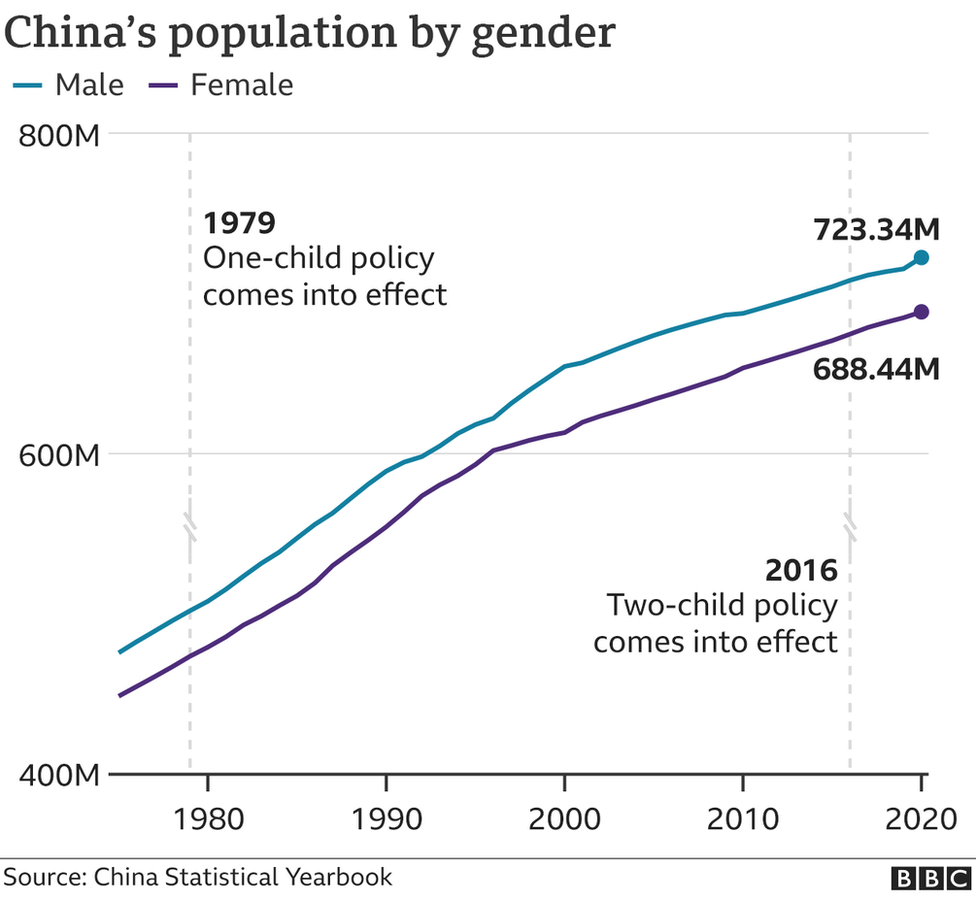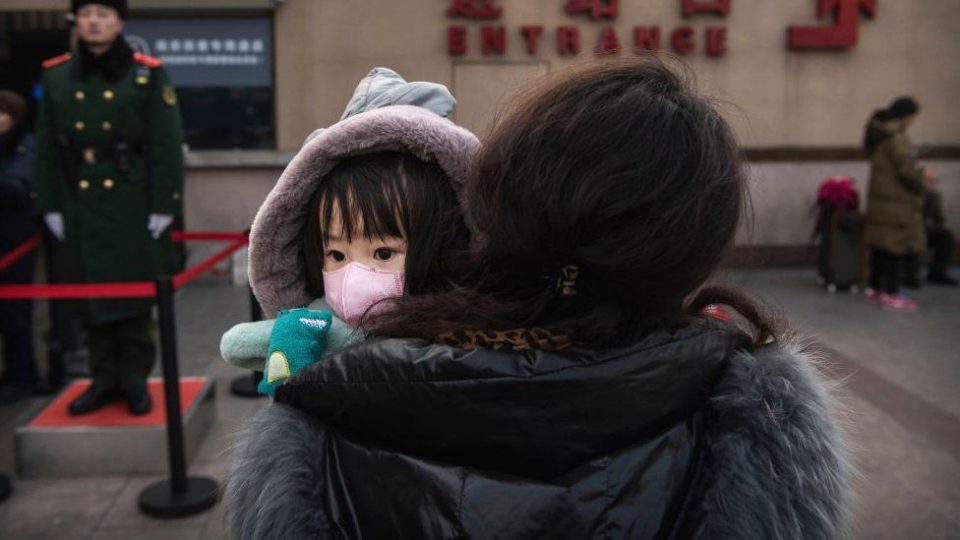China has announced that it will allow each couple to have up to three children, marking the end of a strict two-child policy.
The change was approved by President Xi Jinping in a politburo meeting, state media outlet Xinhua said.
It comes after a once-in-a-decade census showed that China’s population grew at its slowest pace in decades.
This added pressure on Beijing to boost measures for couples to have more babies and avert a population decline.
China’s census, released earlier this month, showed that around 12 million babies were born last year – a significant decrease from the 18 million in 2016, and the lowest number of births recorded since the 1960s.
It was widely expected after the census data results were released that China would relax its family policy rules.
Family planning and forced abortions
In 2016, the government ended a controversial one-child policy and allowed couples to have two children.
But the reform failed to reverse the country’s falling birth rate despite a two-year increase immediately afterwards.

Ms Yue Su, principal economist from The Economist Intelligence Unit, said: “While the second-child policy had a positive impact on the birth rate, it proved short-term in nature.”
China’s population trends have over the years been largely shaped by the one-child policy, which was introduced in 1979 to slow population growth.
Families that violated the rules faced fines, loss of employment and sometimes forced abortions.
A skewed gender ratio
The one-child policy led to a severe gender imbalance in the country – in a culture that historically favours boys over girls.
“This poses problems for the marriage market, especially for men with less socioeconomic resources,” Dr Mu Zheng, from the National University of Singapore’s sociology department, said.

Experts had ahead of China’s latest census, speculated that birth restrictions might be lifted entirely – though it appears as though China is treading cautiously.
Some experts had pointed out that such a move could potentially lead to “other problems” – pointing out the huge disparity between city dwellers and rural people.
As much as women living in expensive cities such as Beijing and Shanghai may wish to delay or avoid childbirth, those in the countryside are likely to still follow tradition and want large families, they say.
“If we free up policy, people in the countryside could be more willing to give birth than those in the cities, and there could be other problems,” a policy insider had earlier told Reuters, noting that it could lead to poverty and employment pressures among rural families.
Experts had earlier warned that any impact on China’s population, such as a decline, could have a vast effect on other parts of the world.
Dr Yi Fuxian, a scientist at the University of Wisconsin-Madison, said: “China’s economy has grown very quickly, and many industries in the world rely on China. The scope of the impact of a population decline would be very wide.”



